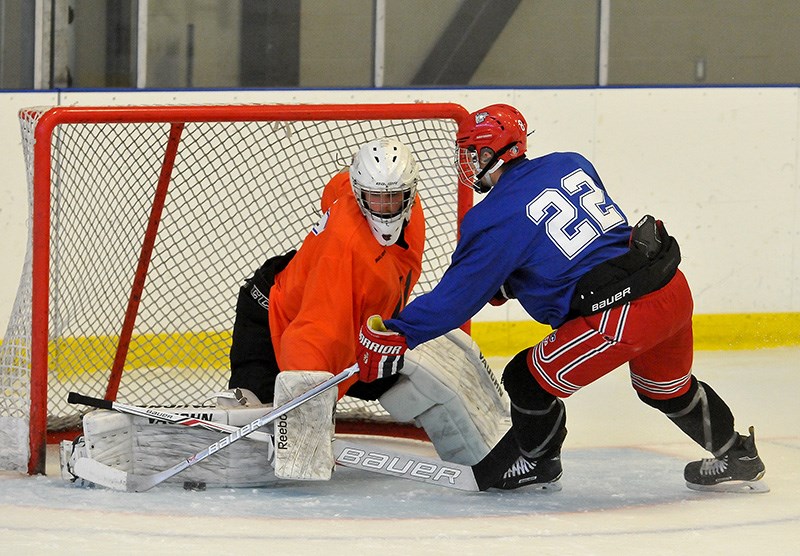An app on a phone or tablet will ensure players on the Coquitlam Express aren’t returning to the ice with a possible concussion after they’ve suffered a blow to the head.
The BC Hockey League has signed a service agreement with HeadCheck Health Inc., a Canadian company that created the app.
Harrison Brown, the CEO of HeadCheck, said while the company’s software is being used by more than 150 teams, from minor to university, in all sports from hockey and football to frisbee and cheerleading, the BCHL is the first league to adopt the app for all its teams.
That will ensure a consistent quality of care for every player in the league, Brown said. It also means the league itself will be able to monitor the compliance of all its teams and their trainers to its concussion protocols.
“It’s objective,” Brown said. “It assures everybody is doing the exact same thing.”
And, ultimately, that’s better for the health of the players, whether they’ve been concussed or not.
“Player safety is of utmost importance to the BCHL,” said the league’s commissioner, John Grisdale. “Our athletic therapists will now have instant access to a reliable concussion assessment tool during practices and games in order to make appropriate sideline medical decisions.”
Keeping the tool simple to use and making it interactive are keys to its acceptance by the trainers and players, Brown said.
“We built the product with athletic therapists to make their lives easier, to allow them to do a test quicker and get to a decision quicker,” Brown said. “The players enjoy it because it’s kind of a cool app, they can interact with it, they can track their symptoms.”
The app consists of a series of tests that can help a trainer measure a player’s balance, cognition and memory.
Prior to the season, every player is tested to create a baseline against which their scores on those tests can be compared if the player suffers a blow that could have caused a concussion. The results of every test, and the circumstances of any blow to the head, help build a database of a player’s concussion profile that can help inform treatment plans. The data can also follow the player as they change teams or leagues or even sports.
Once a player has recovered from a concussion and is cleared by a medical professional to play, that clearance note is also uploaded to the player’s profile as confirmation to the league that no player on the ice is skirting concussion protocols.
Brown said implementing the app in the BCHL goes beyond just training athletic therapists on its use. It also includes educating players, coaches and members of the community to recognize the symptoms of concussion.
That’s one of the reasons retired NHLer Kyle Wellwood decide to invest in HeadCheck. He saw a lot of players put their livelihoods and lives at risk to stay in the game after suffering a blow to the head during his 489-game career in the NHL.
“It’s great to see BCHL act as a leader in player safety by making concussion awareness, education and assessment part of the league protocol,” Wellwood said.
Brown said attitudes about concussions are changing. The days of asking an athlete for their name, or day of the week, to determine if they’re still able to play after a blow to the head are diminishing. And athletes are becoming more accepting of a concussion diagnosis.
Apps like HeadCheck are speeding that process.
“Whenever we talk to somebody about concussions, we try to make it very positive,” Brown said. “It’s socially acceptable to be concussed and to be vulnerable.”



